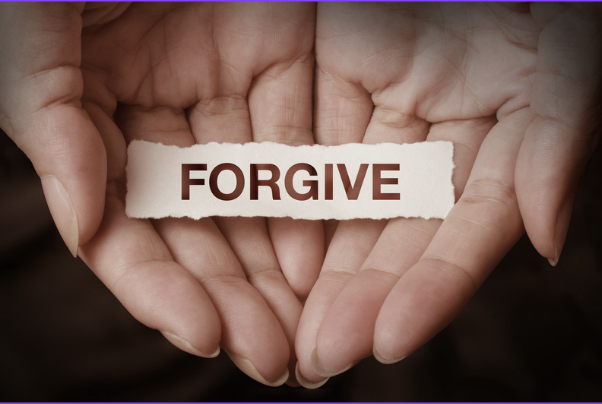A Guide to Forgiveness
by Shifan Hu-Couble
Counsellor / Psychotherapist / Parenting Coach
What is forgiveness?
According to the American Psychological Association’s definition, forgiveness is a willing act of letting go of resentment towards someone who has hurt you. It is a process of grief, introspection, reflection, and transformation of one’s belief system.
Why do we forgive?
Forgiveness helps us to seize the moment
Forgiveness returns us to the present moment. When you are resentful and angry at a past event or a person, you are deprived of what is in front of you in the present moment. My client Jane came to me right after going through bankruptcy caused by a poor business venture with her uncle. She ruminates on what-ifs, unable to move on. She lost her motivation to work as her dream of buying a house in the next five years was shattered. She is stuck in the past, absent from her present life. Our task at hand is to bring her back to the present moment by forgiving what happened in the past. Forgiveness can bring you back to the present and see things as they are without projection.
Forgiveness helps to improve physical health
Forgiveness improves physical health by lowering stress levels and blood pressure. Using the same example, as Jane continues to hold grudges towards her uncle for bringing her into the business, she becomes hypervigilant with the assumption that people are always out there to get her. She no longer feels safe and secure in her environment. This hypervigilance activates her sympathetic nervous system which is our body’s innate flight and flight response to perceived threat. Her body experiences elevated chronic stress. This causes her psychosomatic symptoms such as migraines and acid reflux. Forgiveness can release us from resentment and mistrust, which in turn reduces our stress levels.
Forgiveness helps to draw boundaries
Forgiveness can also teach us how to draw effective boundaries. It is a self-protective mechanism. One of the common reasons people do not forgive is the fear of the same thing repeating itself and one gets hurt again and again for the same reason. Jane might not forgive because she thinks forgiving her uncle means she will fall into the same trap again. Forgiveness informs us how to draw boundaries. Jane can learn from this incident and draw a boundary between finance and relationships: I will not have any financial involvement with my family and friends.
How to forgive?
Despite all the benefits forgiveness can bring into our lives, it is not an easy task. When we get hurt, it triggers our shame: I should have known better, I should have seen this coming, I should not have trusted so easily. Such narratives keep us in shame which disallow us to move on. There are some effective strategies for forgiving.
Cultivate compassion
The prerequisite for compassion is the belief that everyone is good at his core. Only when we assume a person’s goodness, we can find a way to understand what has gone wrong in the person’s pursuit of goodness. We become curious rather than bitter. When you forgive someone, it does not mean you agree with this person’s choice, words or behaviours. It just means that you believe in the person’s goodness.
Go through stages of grief and loss
Forgiving is essentially a grief and loss process. What is lost is an ideal, an expectation, and a fantasy. For example, when you find out about your partner’s infidelity, you have lost an idea of who your partner is supposed to be, a life together, and painfully the trust you have in your partner. To forgive is to mourn the loss through the five stages: anger, denial, bargaining, depression, and eventually acceptance. Allowing these difficult emotions to arise and processing them is the key to moving through the stages of grief.
Adopt a growth mindset
After studying the behaviour of thousands of children, Dr. Dweck coined the terms fixed mindset and growth mindset to describe the underlying beliefs people have about learning and intelligence. People who have a growth mindset believe that even if they struggle with certain skills, their abilities can improve. They think that with work, their skills can get better over time. When we adopt a growth mindset after we get hurt, we believe we can learn from the experience instead of feeling like a victim which is a powerless state. Growth mindset empowers us to introspect and learn from a painful experience.
How Counselling in Singapore can help
Counselling in Singapore can play a significant role in facilitating the forgiveness process. By working with a counsellor, psychologist or psychotherapist, individuals can gain a deeper understanding of forgiveness, recognizing that it doesn't mean forgetting, condoning, or reconciling with the person who hurt them. Counselling helps individuals identify and process their emotions, including anger, sadness, and hurt, and develop techniques to manage and regulate these emotions. Through reframing perspectives and narratives, counsellors assist clients in shifting from a victim mentality to a more empowered perspective, acknowledging personal growth and resilience.
About the author
Shifan is an experienced counsellor, parenting coach and psychotherapist at The Counselling Place Singapore. With expertise in trauma and parenting issues, she supports clients in English, Mandarin, and Cantonese.
Shifan integrates talk therapy with body-based modalities like EMDR and Somatic Experiencing. Her unique blend of corporate and therapeutic experience empowers individuals, couples, and parents to navigate cross-cultural relationships, heal childhood trauma, and foster secure attachments.



